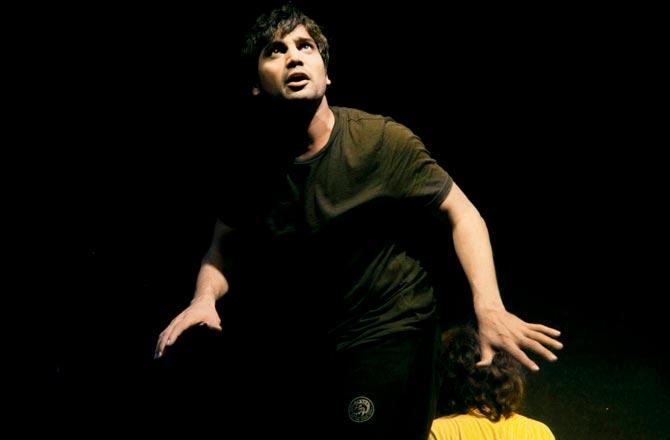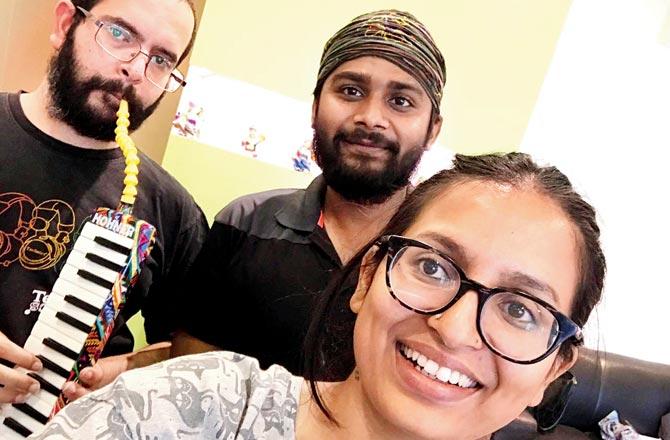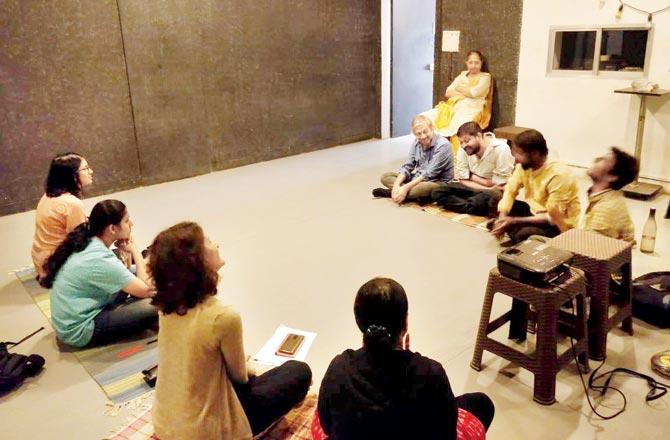A new play fictionalises two incidents of caste-based violence in India to bring to light how the phenomenon goes beyond inter-community marriages, and stifles freedom in everyday life

The play is situated in a dreamscape revolving around a conversation between the two protagonists played by Priyanka Charan
Romeo Ravidas loved horses. When he requested his father to buy him one, he was offered the more enticing option of riding a Bullet motorcycle instead. Romeo was adamant; his father had to give in. Days later, Romeo was murdered. He belonged to a Dalit family, and owning a horse was against the social sanction in his village.
This is a fictional account — as far as the name goes. That such an episode could happen in the India of 2018 stumped theatre director and researcher Sharmistha Saha when she read about the fate of the horse-loving 21-year-old, Pradip Kalubhai Rathod, in Timbi, Gujarat.
ADVERTISEMENT

The play is situated in a dreamscape revolving around a conversation between the two protagonists played by Dilip Pandey
"When we think of caste atrocities in popular discourse, it is usually a Romeo-Juliet narrative through which caste surfaces; in a love story between an upper-caste woman and a lower-caste man," she shares. But everyday casteism plays out in punishing innocuous love for an animal, not letting one keep a moustache or even wearing sunglasses. "The wrath inter-caste marriages invite is, in fact, rooted in these everyday acts that stifle your freedom to exist. Romeo Ravidas aur Juliet Devi is about this," says Saha about theatre group Qissa Kothi's upcoming play, which she developed as part of a theatre residency at Studio Tamaasha.
The play draws from another real-life incident of an honour killing in Tamil Nadu, and is a dreamscape revolving around a conversation between Kaushalya, the widow of the slain Dalit man, and Romeo Ravidas. Saha's work on the play began with the acceptance of her own privilege.

Music composer Aman Nath, co-writer Shubham Sumit and director Sharmistha Saha
"I have not lived the life of a Dalit. So, it was important for me to engage with people who have explored questions around caste," she says. As a result, the initial stages of the residency involved sharing sessions with theatre artistes, researchers, poets and activists. "I don't know if I can change society, but I know that what I create needs to portray life," she adds.
To do that, she has co-written the play with Shubham Sumit, a final-year student of BTech at IIT Bombay, who decided to take up theatre full- time after he attended one of Saha's workshops at the institute.

A sketch of the play's scenography by Reema K
"It started with me translating the play in Hindi, with a touch of Bhojpuri. But slowly, I started seeing myself in it, and several childhood memories began to make sense," he says, recalling how he would see women and children from the Musahar community flock to the fields in his hometown of Buxar, after harvest.
"They would come to forage for leftover wheat so they could make rotis, or tease out mice from the soil to eat them — that's where the community gets its name from."
In the hustle and bustle of city life, where the narrative on rural living tends to get stripped of all socio-political context, sub-human conditions of existence are often glossed over. "Juliet, as Romeo calls his beloved horse, becomes a metaphor for desire, something that only the privileged are entitled to harbour," says Saha. "Will we ever have a happy Romeo-Juliet story in the world we live in?"

A workshop-cum-sharing session with Dalit artistes, filmmakers and researchers
On March 2 and 3, 8 pm; Castiko Space, Versova (pay as you like); March 7, 8 and 9, The Cuckoo Club, Bandra West (Rs 300); March 10, Harkat Studios, Versova (Rs 300)
Log on to bookmyshow.com; insider.in
Catch up on all the latest Mumbai news, crime news, current affairs, and also a complete guide on Mumbai from food to things to do and events across the city here. Also download the new mid-day Android and iOS apps to get latest updates
 Subscribe today by clicking the link and stay updated with the latest news!" Click here!
Subscribe today by clicking the link and stay updated with the latest news!" Click here!







